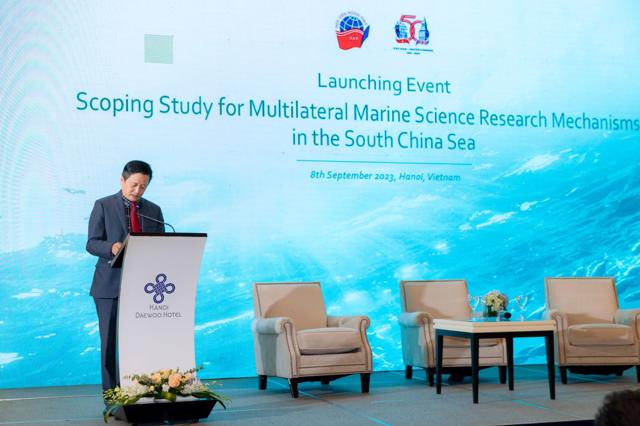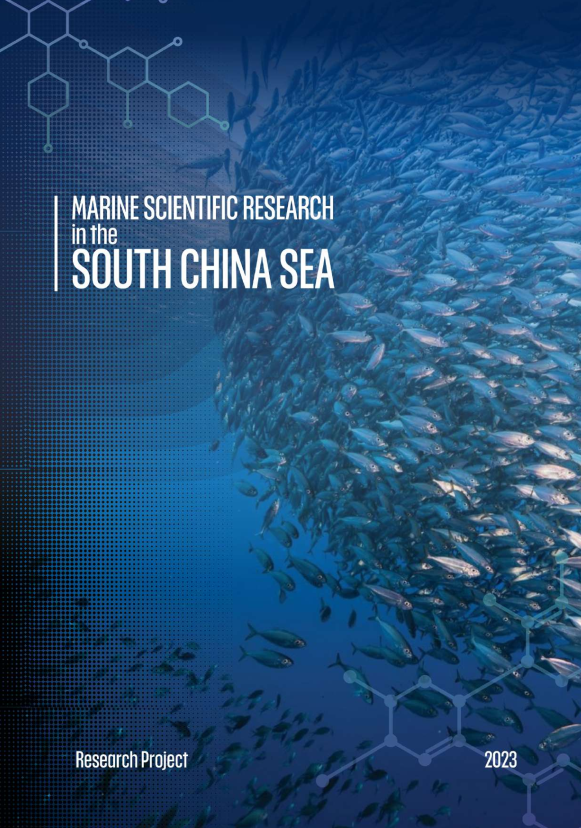


The Diplomatic Academy of Vietnam (DAV) has completed the Scoping Study for Multilateral Marine Science Research Mechanisms in the South China Sea. The research project is funded by the Foreign, Commonwealth and Development Office (FCDO) of the Government of the United Kingdom.

The overarching objective of this study is to identify options for multilateral marine science research mechanisms in the South China Sea that could be piloted and discussed with regional partners. These multilateral marine science research mechanisms could be a means to trust and substantive development benefits for the people and ecology of the South China Sea. The research includes three chapters as follows:
Chapter 1: Prospects for harmonization of national MSR regulations among littoral states of the South China Sea as a confidence-building measure
The analysis of both the international and national legal frameworks for MSR activities of these six ASEAN Members and China is undertaken with a view to proposing and developing policy and legal options that the UK government, as a Dialogue Partner to ASEAN, can suggest for improved co-ordination of joint MSR activities, both between and among these six ASEAN States in the SCS namely, Vietnam, the Philippines, Malaysia, Indonesia, Brunei, and Singapore, as well as with the PRC/China (including Taiwan), both within and external to the Southeast Asian region, including land-locked and geographically-disadvantaged States.
Chapter 2: Analysis of current practices on join MSR and lessons learnt from these practices
This 2nd part will analyse relevant multilateral cooperative practices on joint marine scientific research (MSR) to find out what lessons they can provide for the development of a joint marine scientific research mechanism in the South China Sea. Two types of practices are studied: a) cooperative practices with a geographical scope including the South China Sea and b) cooperative practices in other regional seas with disputed maritime features and overlapping maritime jurisdiction claims. For each of these types of practices, the following elements will be assessed as a matter of priority: i) areas of work focus, ii) organisational structure, iii) functioning, iv) funding, v) development, and vi) implementation of specific MSR projects.
The project suggests six lessons learnt for the development of multilateral cooperation in marine scientific research in the South China Sea, including: (i) Conceptualizing, developing and implementing a joint marine scientific research project within an existing cooperative framework; (ii) Including wider participants from the internal and external region in MSR cooperation; (iii) Providing adequate funding for MSR activities; (iv) Considering a high level of decision-making to implement cooperative MSR projects; (v) Establishing a specialised mechanism for scientific matters involving renowned scientists or experts; (vi) Resolving sensitive matters through thorough consultation to implement a field survey or research in the disputed area.
Chapter 3: Policy recommendations to enhance MSR in the South China Sea
The 3rd part identifies options for multilateral MSR mechanisms in the South China Sea and identification of their theory of change to promoting MSR cooperation in the South China Sea. The project aims to promote trust building and the peaceful management and resolution of disputes in the region.
Read full 78-page Report here